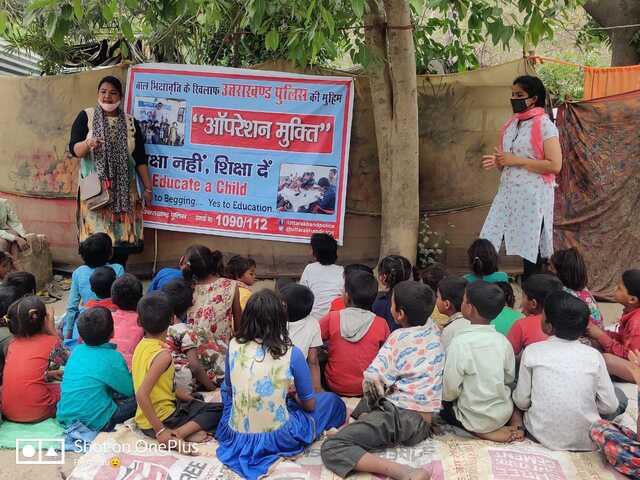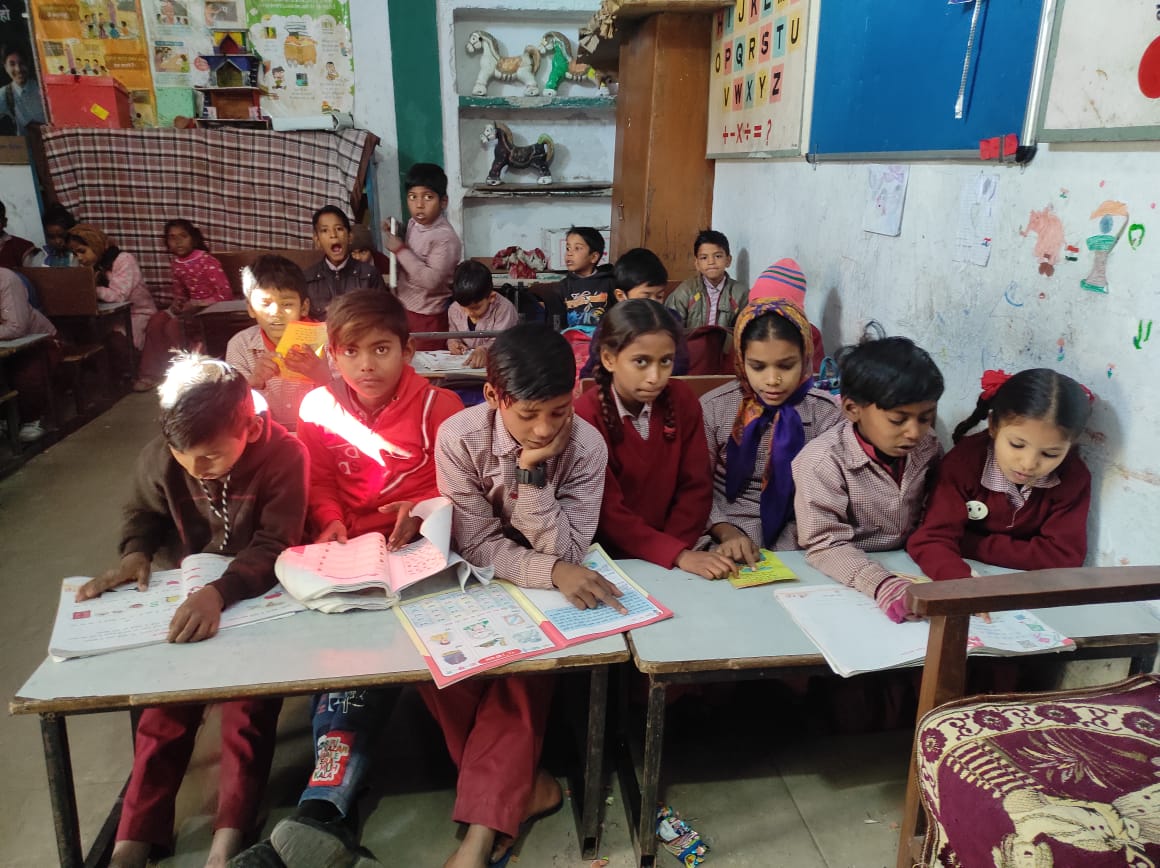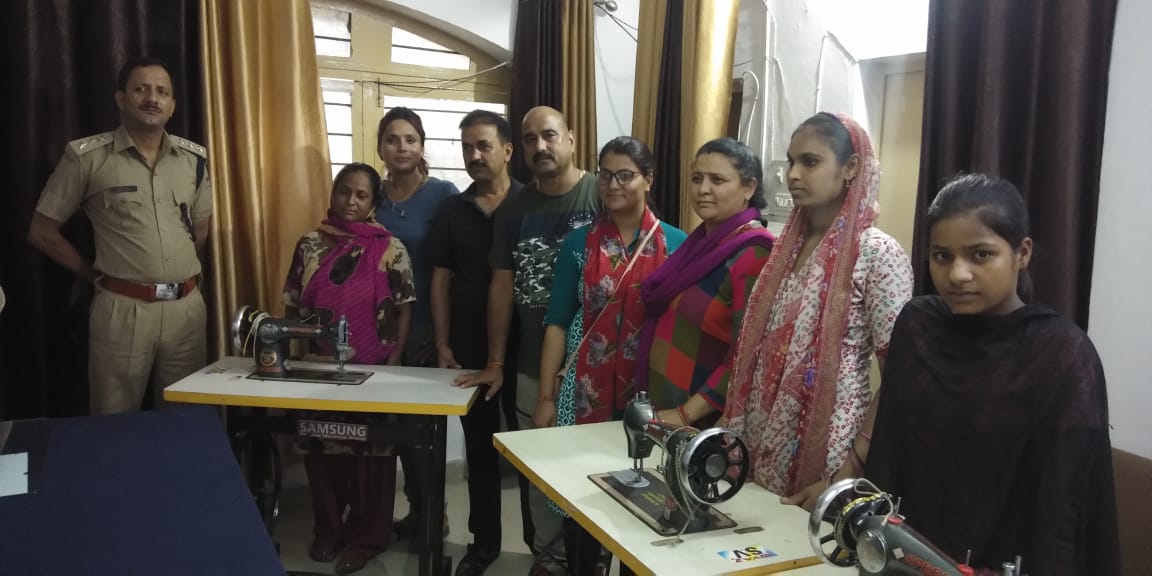For 12-year-old Aakash, who hails from Dehradun and used to beg for alms till final 12 months, training was solely a distant dream.
This dream turned a actuality when he was enrolled in a authorities faculty. “Final 12 months, police uncle enrolled me on this faculty. They gave me a uniform and books. I secured 83.6 per cent in my [annual] exams,” Aakash, who loves talking English, tells The Higher India.
“English and Math are my favorite topics. I need to grow to be a software program engineer once I develop up. My father desires me to,” says the Class 4 child, whose father does labour jobs to assist his household. As a result of monetary disaster, Aakash had been compelled into begging.
The youngsters of right this moment are belongings of tomorrow. However training – a basic proper – stays a utopian fantasy for a lot of oppressed and impoverished kids who’re pushed into begging, usually by their mother and father. Their goals crushed, hundreds zigzag their manner day by day by crowds in direction of tea retailers, markets, over bridges, indicators, buses, and trains, begging for alms from each passerby with innocence of their eyes.
For the reason that a long time after the Youngsters Act 1960 got here into power, baby begging nonetheless stays a fear for the nation.
Mukti from begging
In a transfer to rid kids of begging, the Director Common of Police (DGP) Uttarakhand launched a particular drive – Operation Mukti in 2017.
“Operation Mukti goals at mukti (liberation) from baby begging and labour. We have to guarantee their childhood shouldn’t be ruined. Individuals assume that by giving these youngsters cash, they’re serving to them. In reality, it’s pushing them additional into baby begging,” the DGP Ashok Kumar tells The Higher India.
“Bhiksha nahi, shiksha do,” he provides. The theme of the marketing campaign is “Don’t beg, give training”.
What motivated Kumar was an incident when a toddler was begging in entrance of the police automotive, however as a substitute of providing Rs 5 or Rs 10, the DGP needed to discover a higher resolution.
“We needed to assist them in an organised method by ending this from the foundation. Because of an absence of training, some kids might flip in direction of crime. Their going to highschool may even cease the tendency to crimes. We would like them to attach within the mainstream,” says Kumar, who has been within the power for over 33 years.
The marketing campaign, which is the DGP’s brainchild, goals to rehabilitate these kids by enrolling them in authorities faculties. Of over 4,000 baby beggars within the age bracket of 5-15 years recognized within the hill state, the DGP and his group of anti-human trafficking unit have rescued greater than half from begging prior to now 5 years, he says. Of those, 1,700 youngsters are presently in school — studying, taking part in and envisioning a greater future.

For a greater tomorrow
“Final 12 months, the police enrolled 19 youngsters within the age group of 6-11 years. They had been into begging work or used to choosing waste or promoting balloons for cash. These youngsters — Neha, Meena, Aakash, Karan — are dedicated to research greater than any common youngsters right here. They’ve a previous, are younger, however have a starvation for training,” Indu Jyoti, Aakash’s trainer says.
“Such youngsters get a great surroundings at school. They’re studying subtraction, multiplication, addition, counting, and studying tables. Because of the efforts of the police, these youngsters will be capable of work in direction of a greater future,” she provides.
How difficult is it for these kids to adapt to the college surroundings with common kids? “Since these are very younger kids, it isn’t very tough to show them. In reality, their greedy energy is sweet,” says Jyoti.
Giving an instance of Class 2 pupil Neha, the trainer says, “You train her something as soon as, and she’s going to keep in mind it, whether or not it’s Math or English. She is a really clever and brilliant lady.”
Nevertheless, it’s a little difficult to show kids who’re money-oriented, or drug-addicted, she notes. “Even educating them staple items turns into tough, although we spend additional hours to make them comfy within the faculty surroundings.”
Youngsters represent 14 per cent of the entire beggars within the nation, based on the Ministry of Social Justice and Empowerment. It’s estimated that greater than three lakh kids throughout India are compelled to beg, utilizing all the pieces from dependancy to medicine, threats of violence and precise beatings.
In 99 per cent of circumstances, “We’ve got discovered that kids are compelled into baby begging by mother and father as a result of they don’t need to work. On common, a toddler will get Rs 500 a day from begging. This involves a complete of round Rs 15,000 a month. Even a day by day wager earns much less. So mother and father grow to be idle and make their youngsters beg”, Kumar explains.
Subsequently, sustainability turns into cumbersome.

Discovering options
“Figuring out such kids is straightforward. Enrolling and retaining them in faculties is difficult. Many occasions, kids drop out of faculties the place we enrol them. Dad and mom take away them from faculties forcefully. So we have now to make constant efforts. With common follow-ups and counselling mother and father, we inspire them to work. Within the preliminary section, the dropout was 50 per cent, this has decreased to twenty per cent now,” says the DGP.
“Forcing youngsters to beg is a criminal offense, and oldsters could possibly be jailed for this. Nevertheless, we attempt to counsel them as a result of if we ship them to jail, the harmless baby would lose their caretakers,” says the lDGP. “Nevertheless it doesn’t imply, they’ll get away with committing crime repeatedly.”
Since sustainability is difficult, the police additionally counsel mother and father and encourage them to work. Other than this, in addition they present them with means to earn their livelihood. As an example, Asha, a mom of 5, was given a stitching machine eight months in the past.
“My husband died 4 years again. It was tough for me to assist the training of my kids. Now with this revenue, I’m able to take care of my 5 kids — 4 daughters and one son — and I save as much as Rs 2,000,” the 30-year-old says.

“My Chanda [aged 9] and Bhishan [aged 7] had been enrolled at school this 12 months. They got uniforms, books, footwear, and water bottles. They [the police] didn’t take a single penny from us for this. Earlier, they might roam right here and there however now they usually go to highschool,” says the mom, who was going to prepare dinner lunch for her youngsters, who might be house quickly after the college bell rings.
With the assistance of greater than 100 police individuals of the anti-human trafficking unit of the federal government, the DGP conducts consciousness drives together with organising nukkad natak (avenue performs).
“We’ve got no less than 5 police individuals actively engaged on this marketing campaign in all 13 districts of the state. Generally our police personnel take day out to show these youngsters to make them comfy once they attend faculty. Many occasions youngsters escape from faculties as a result of they discover it tough to adapt to the surroundings,” says Kumar.
“We assessment the progress of the marketing campaign and work concentrated in two months throughout January and February, the interval earlier than admissions are introduced in April. It takes us round two months to establish such youngsters, counsel them and their mother and father, and enrol them in authorities faculties,” says 59-year-old DGP.
On this marketing campaign, individuals have additionally been made conscious that they need to do their responsibility by giving training to the youngsters and never giving alms. “Police are usually not doing this alone. With citizen engagement, the police might make it attainable. Individuals have are available entrance and supplied youngsters books and uniforms. Since we don’t imagine in opening a donation account, the general public straight donates to the kid. We don’t take any monetary assist,” says Kumar.
“It’s a terrific satisfaction to see these kids go to highschool. Within the subsequent step, we are attempting to trace good youngsters out of those and assist their greater training,” concludes the DGP.
The DGP’s work was additionally highlighted within the 2022 e-book titled Greatest Practices On Good Policing – a e-book on the great work carried out by the police and different police organisations of various states throughout the nation.
Edited by Divya Sethu.
